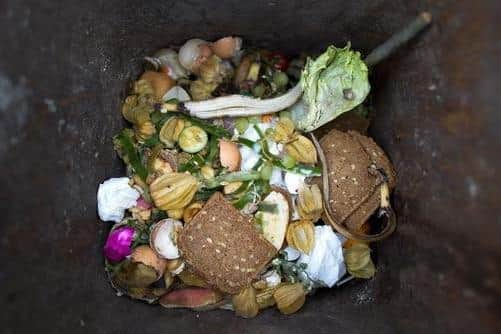University of Northampton COP26 hosts talk by sustainable food group with sobering advice for consumers
and live on Freeview channel 276
Consumers are being encouraged to change their buying habits as part of a talk given at the University of Northampton's COP26 event.
Robin Burgess led the talk, acting in his role as chair of West Northamptonshire Sustainable Food Place (WNSFP). The group exists to improve the sustainability, accessibility, quality and affordability of food in West Northamptonshire.
Advertisement
Hide AdAdvertisement
Hide AdHe used the talk to highlight the choices consumers can make to reduce their impact on the planet, as well as food poverty.


While they are 'quite new' Burgess says they have wide multi-agency support to tackle food issues.
He said: "70 per cent of what is wasted by consumers is equal to the Greenhouse Gasses produced by 10 million cars. We have seen that a third of all global greenhouse gas emissions are food related, a third of all food produced is wasted and a third of all global warming to date has been caused by farting cows.
"Consumers have a massive part to play in reducing our carbon footprint. We can choose to eat less meat and dairy. We can seek out a greater diversity of food with emphasis on local produce grown and produced locally. Only buy what you need and always check the date so nothing is allowed to go off.
Advertisement
Hide AdAdvertisement
Hide Ad"Even cycling to the shops instead of driving is a choice we have that can make a difference."
Other climate-concerned groups have also offered there support for Burgess' points.
Jane Wood, chair of Climate Action – West Northamptonshire (CA-WN), said that humans are using resources at unsustainable rates. According to Wood, planning is central to staying on top of your food usage. This can even extend to which foods you buy, and where from.
She said: "We cannot afford to use resources to produce and transport food that is ultimately not eaten. By cutting food waste we can reduce our damaging impact on the environment without negative effects on how we live.
Advertisement
Hide AdAdvertisement
Hide Ad"Eating less meat is definitely one option that we must use to reduce the negative impacts of food production, however not all vegetarian or vegan options are equal in terms of carbon footprint. As consumers we need to think more carefully about what we eat and its entire production cycle.
"Plan what you are going to eat so you don’t end up buying more food than you need. Learn to cook so you can make good use of the food available to you, and can also eat more cheaply and healthily. The general principle of being a more conscious consumer applies to food as to everything else that we buy."
Burgess is set to hold another talk on Friday, November 5 on the last day of the University of Northampton's COP26 event.
Anyone who is interested in reducing food waste can visit "This is Rubbish" here.
Comment Guidelines
National World encourages reader discussion on our stories. User feedback, insights and back-and-forth exchanges add a rich layer of context to reporting. Please review our Community Guidelines before commenting.